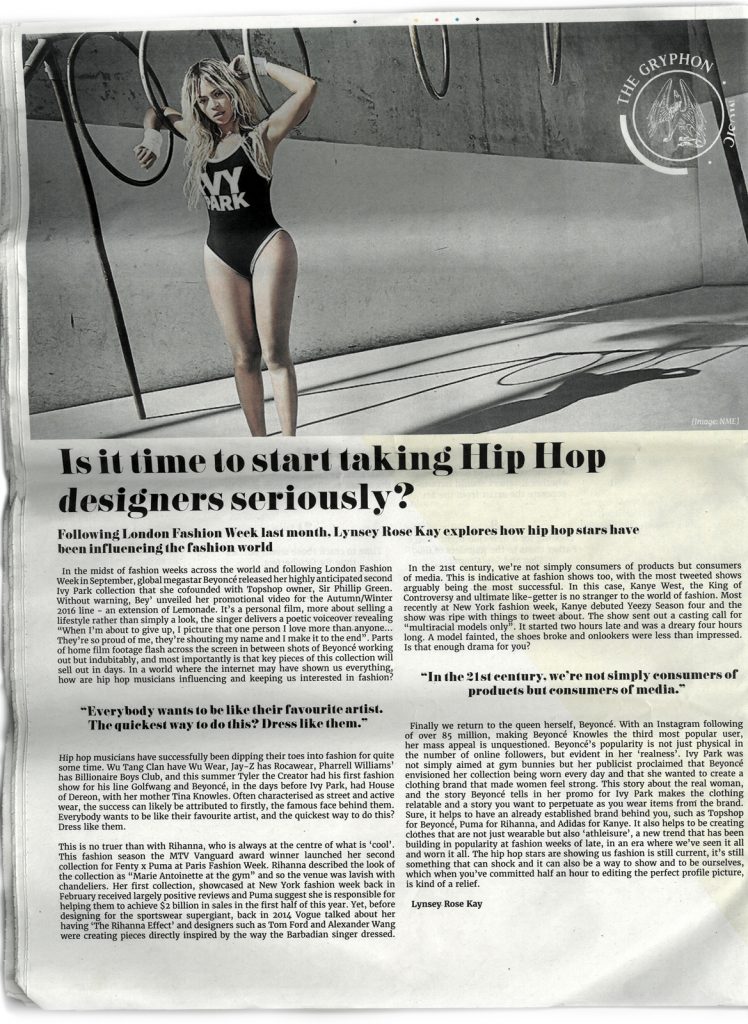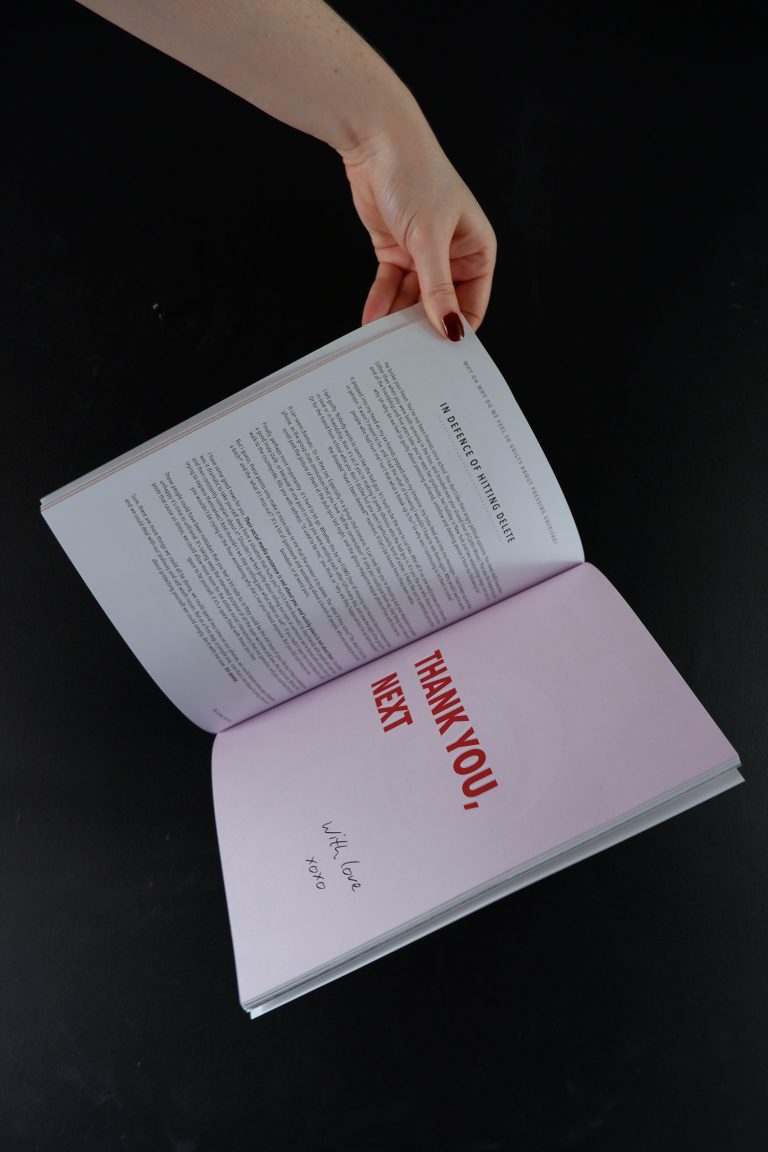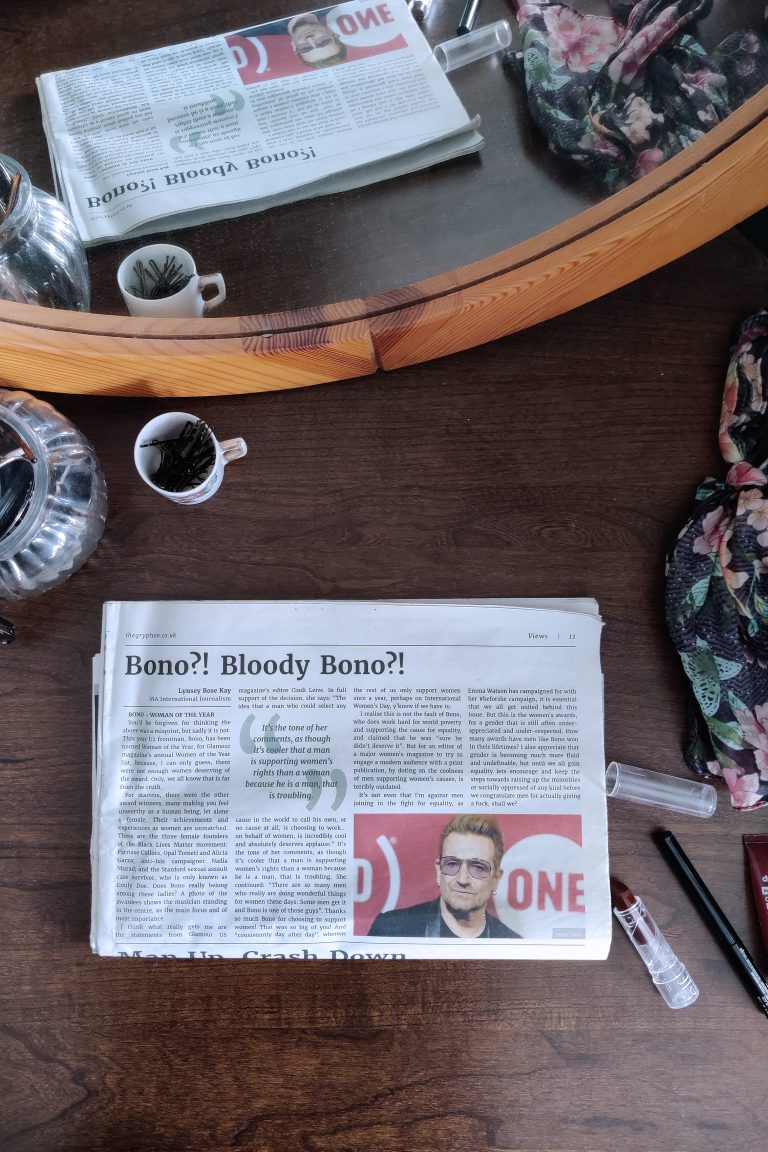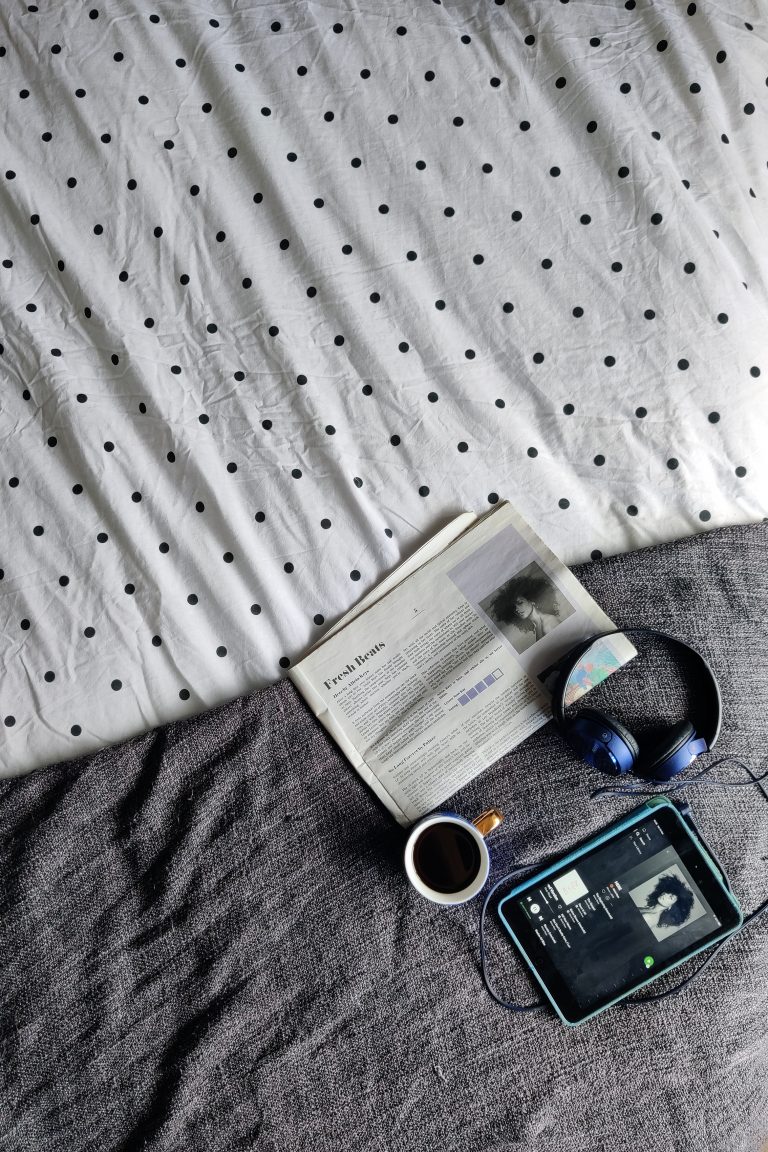
This piece was originally published in The Gryphon in print and online, and can be found here.
In the midst of fashion weeks across the world and following London Fashion Week in September, global megastar Beyoncé released her highly anticipated second Ivy Park collection that she cofounded with Topshop owner, Sir Phillip Green. Without warning, Bey’ unveiled her promotional video for the Autumn/Winter 2016 line – an extension of Lemonade. It’s a personal film, more about selling a lifestyle rather than simply a look, the singer delivers a poetic voiceover revealing “When I’m about to give up, I picture that one person I love more than anyone…They’re so proud of me, they’re shouting my name and I make it to the end”. Parts of home film footage flash across the screen in between shots of Beyoncé working out but indubitably, and most importantly is that key pieces of this collection will sell out in days. In a world where the internet may have shown us everything, how are hip hop musicians influencing and keeping us interested in fashion?
Hip hop musicians have successfully been dipping their toes into fashion for quite some time. Wu Tang Clan have Wu Wear, Jay-Z has Rocawear, Pharrell Williams’ has Billionaire Boys Club, and this summer Tyler the Creator had his first fashion show for his line Golfwang and Beyoncé, in the days before Ivy Park, had House of Dereon, with her mother Tina Knowles. Often characterised as street and active wear, the success can likely be attributed to firstly, the famous face behind them. Everybody wants to be like their favourite artist, and the quickest way to do this? Dress like them.
This is no truer than with Rihanna, who is always at the centre of what is ‘cool’. This fashion season the MTV Vanguard award winner launched her second collection for Fenty x Puma at Paris Fashion Week. Rihanna described the look of the collection as “Marie Antoinette at the gym” and so the venue was lavish with chandeliers. Her first collection, showcased at New York fashion week back in February received largely positive reviews and Puma suggest she is responsible for helping them to achieve $2 billion in sales in the first half of this year. Yet, before
designing for the sportswear supergiant, back in 2014 Vogue talked about her having ‘The Rihanna Effect’ and designers such as Tom Ford and Alexander Wang were creating pieces directly inspired by the way the Barbadian singer dressed.
In the 21st century, we’re not simply consumers of products but consumers of media. This is indicative at fashion shows too, with the most tweeted shows arguably being the most successful. In this case, Kanye West, the King of Controversy and ultimate like-getter is no stranger to the world of fashion. Most recently at New York fashion week, Kanye debuted Yeezy Season four and the show was ripe with things to tweet about. The show sent out a casting call for “multiracial models only”. It started two hours late and was a dreary four hours long. A model fainted, the shoes broke and onlookers were less than impressed. Is that enough drama for you?
Finally we return to the queen herself, Beyoncé. With an Instagram following of over 85 million, making Beyoncé Knowles the third most popular user, her mass appeal is unquestioned. Beyoncé’s popularity is not just physical in the number of online followers, but evident in her ‘realness’. Ivy Park was not simply aimed at gym bunnies but her publicist proclaimed that Beyoncé envisioned her collection being worn every day and that she wanted to create a clothing brand that made women feel strong. This story about the real woman, and the story Beyoncé tells in her promo for Ivy Park makes the clothing relatable and a story you want to perpetuate as you wear items from the brand.
By Lynsey Rose Kay



